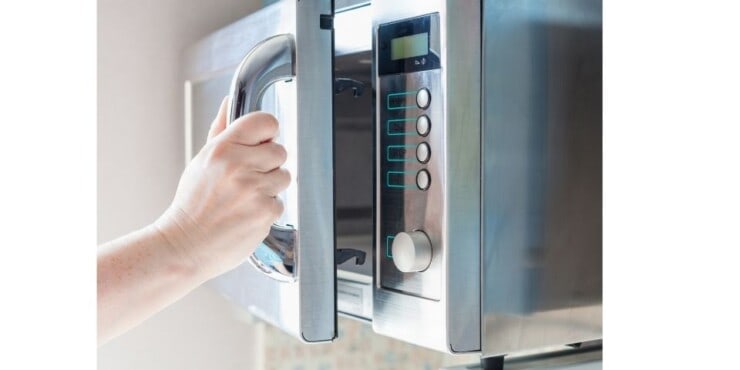Microwaves are a big-time lifesaver in our daily lives. The indispensable machine is a go-to kitchen appliance to get our food heated quickly, especially during rush hours. Its versatility also spans preparing vegetables, meat products, making hot sandwiches, and more.
Like every other appliance, your microwave oven can break down at any point, usually due to high voltage. While trying to trace the origin of the problem, the question do microwaves have fuses pop up. This article will tell you everything you need to know about microwaves and fuses.
To answer the question of the day, you should know that microwaves are usually designed with several types of fuses to ensure a safe and smooth operation. A primary fuse prevents electricity from flowing from passing through an electric circuit, and a thermal fuse blocks out electrical flow if the fuse is heated to a specific temperature.
If there is a problem with this device in your microwave, it could result in improper heating of foods, the inability of the unit to turn on, or no response from the touchpad.
Is there a problem with your microwave fuse?
Unfortunately, fuses in microwaves are electric devices that could get faulty quickly, especially after being tripped. It is, in fact, one of the components in a microwave that occasionally demands replacement.
If there is a malfunction in the way your microwave works, professional repairers will look into the fuse to detect whether or not there is a fault. Microwaves are somewhat complicated.
So, even if you aren’t an experienced DIY’er, tDIY’erre steps to fix your microwave and get it to work perfectly well again. It all starts with knowing where the problem is coming from.
How do I know if my microwave fuse is blown?
If you have an ohmmeter or multimeter, you can easily detect whether or not the microwave fuse is blown. All you need to do is get the fuse out of the microwave, position one of the ohmmeters in each fuse terminal, and check the meter reading.
An indicator that the thermal fuse has blown is when you see that there is no continuity on the meter. If this is the situation, it is most likely caused by another microwave malfunction. I do not recommend that you attempt repair right away, except you have solid experience repairing home appliances.
This becomes more critical when you consider the 2000 volts of electricity of the high voltage circuit that microwave has and its potential in causing severe injury.
You may want to contact a professional microwave repairer to fix the fuse problem. However, if the situation is still within the purview of self-repair, the following hacks will give you headway on getting your microwave to work again.
DIY steps to get your microwave working after a blown fuse
As with other kitchen appliances, Microwaves can suddenly stop working. Most of the complaints that came to us on this scenario are usually drawn from the issue of a regularly blown a fuse.
But even if there are other electric problems with the device, you sure have two options: either to replace it or attempt a repair. Instead of getting a new unit or paying a professional, which might cost more, you’re going to see some basic troubleshooting you can carry out, not only to reveal the actual problem of why the unit stopped but also how you can fix the fault yourself.
Step 1: Could it be problems from the outside?
A professional microwave repairer would first check for external problems that might be causing the regularly blown fuse, and this is the first thing you should do – think outside the microwave box.
While this is quite rare, a power surge or a faulty wall outlet could be the culprit behind the blown fuse. Check to see if there are any signs of scorching that require inspection by an electrician or outlet replacement.
Step 2: The door interlock switch could be worn out
When there is no external problem, the next thing you want to check is the door interlock system of the unit. That latch holds the microwave door each time you close it. It is designed with a switch that alerts the microwave to work when it’s close and stops when it is opened.
Because you use the door often, you activate the switch too often, and so it can easily get worn out. This could also be a reason for the blown fuse. Professionals know this, and that is why they test the door interlock system in cases that have to do with fuses in the microwave.
Bottom line
All and above, a microwave has fuses, and they could get faulty at any time, even when you don’t expect them. Thankfully, we’ve gone through the types of microwave fuses, how to detect if yours is blown, as well a practical approach to fixing the problem.
If what has been discussed does not match the problem you are currently facing with your unit, feel free to make it known in the comments, as we’d love to help resolve the issue.

